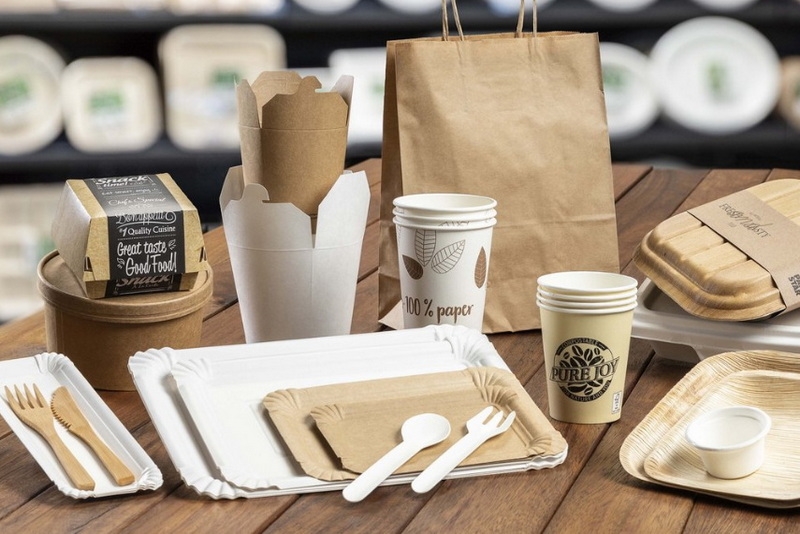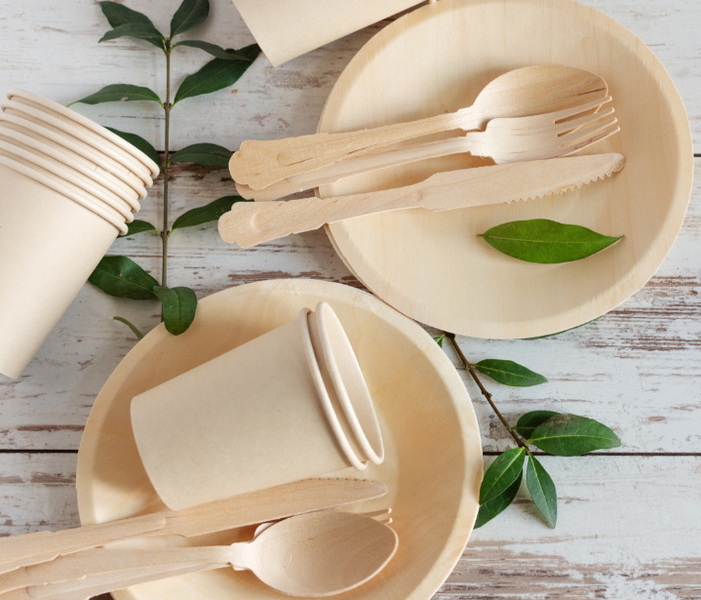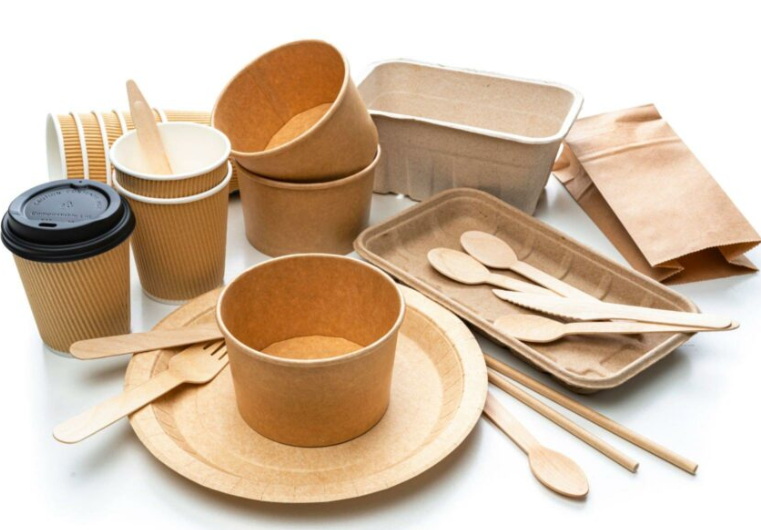
Content Menu
● Introduction to Disposable Tableware
>> Types of Disposable Tableware
● Key Factors to Consider in a Disposable Tableware Wholesaler
>> 1. Material Quality and Sustainability
>> 2. Design and Aesthetic Appeal
>> 3. Versatility and Convenience
>> 4. Production Capacity and Reliability
>> 5. Customer Service and Support
● Evaluating Suppliers
● Benefits of Working with a Trusted Wholesaler
● Market Trends and Innovations
>> Sustainable Materials
>> Customization and Personalization
● Challenges and Opportunities
● Strategies for Building a Long-Term Partnership
● Conclusion
● FAQs
>> 1. What are the key factors to consider when selecting a disposable tableware wholesaler?
>> 2. How can I ensure the sustainability of the disposable tableware I purchase?
>> 3. What certifications should I look for in a disposable tableware supplier?
>> 4. How can I evaluate the reliability of a disposable tableware supplier?
>> 5. What are the benefits of partnering with a large manufacturer for disposable tableware?
Choosing a reliable disposable tableware wholesaler is crucial for businesses and event planners seeking to provide high-quality, convenient, and sustainable dining solutions. The right wholesaler can ensure that your events are both memorable and environmentally friendly. In this article, we will explore the key factors to consider when selecting a trusted disposable tableware wholesaler.

Introduction to Disposable Tableware
Disposable tableware has become an essential component of modern dining, especially for events and gatherings where convenience and ease of cleanup are paramount. The market offers a wide range of materials, including plastic, paper, bamboo, and biodegradable composites. Each material has its unique benefits, such as cost-effectiveness, environmental sustainability, or aesthetic appeal.
Types of Disposable Tableware
1. Plastic Tableware: Known for its durability and affordability, plastic tableware is widely used. However, it raises environmental concerns due to its non-biodegradable nature.
2. Paper Tableware: Eco-friendly and biodegradable, paper products are gaining popularity for their environmental benefits.
3. Bamboo and Palm Leaf Tableware: These natural materials offer a sustainable alternative with a unique aesthetic appeal.
4. Biodegradable Composites: Made from materials like sugarcane bagasse, these products are compostable and reduce plastic waste.
Key Factors to Consider in a Disposable Tableware Wholesaler
When selecting a disposable tableware wholesaler, several factors must be considered to ensure that you find a reliable partner who meets your needs.
1. Material Quality and Sustainability
The material used in disposable tableware is crucial. Look for wholesalers who offer products made from sustainable materials that are durable, non-toxic, and BPA-free. Eco-friendly options like biodegradable composites and bamboo are increasingly popular due to their environmental benefits.
2. Design and Aesthetic Appeal
High-quality disposable tableware often features stylish designs that can enhance the dining experience. Wholesalers offering unique and elegant designs can help elevate your events.
3. Versatility and Convenience
Ensure that the tableware is versatile enough to suit various events and food types. It should be suitable for both hot and cold foods and easy to stack and store.
4. Production Capacity and Reliability
A reliable disposable tableware wholesaler should have a robust production capacity to handle large orders efficiently, especially during peak seasons.
5. Customer Service and Support
Good customer service is essential for addressing any issues promptly and ensuring a smooth purchasing experience.
Evaluating Suppliers
Evaluating potential suppliers involves several steps:
- Research and Comparison: Compare suppliers based on price, quality, and service terms.
- Request Samples: Assess product quality before making large orders.
- Check Reviews and Ratings: Look at customer feedback to gauge reliability and product excellence.
- Consider Long-term Partnerships: Building a long-term relationship can lead to better pricing and service.
Benefits of Working with a Trusted Wholesaler
Partnering with a trusted disposable tableware wholesaler offers several benefits:
- Quality Assurance: Ensures that products meet high standards.
- Cost-Effectiveness: Bulk purchases can be more economical.
- Environmental Sustainability: Access to eco-friendly options.
- Reliable Supply Chain: Timely delivery and consistent supply.

Market Trends and Innovations
The disposable tableware market is evolving rapidly, driven by consumer demand for sustainable products. Innovations in biodegradable materials and compostable packaging are becoming increasingly popular. Wholesalers who stay ahead of these trends can provide businesses with competitive advantages.
Sustainable Materials
The shift towards sustainable materials is a significant trend. Biodegradable composites, bamboo, and palm leaf products are gaining traction due to their eco-friendly nature. These materials not only reduce plastic waste but also offer a unique aesthetic appeal that can enhance the dining experience.
Customization and Personalization
Customization is another key trend. Wholesalers offering personalized designs and branding options can help businesses differentiate themselves and create memorable experiences for their customers.
Challenges and Opportunities
While the market offers many opportunities, there are also challenges to consider:
- Environmental Regulations: Compliance with environmental regulations is becoming more stringent. Wholesalers must ensure that their products meet these standards.
- Supply Chain Disruptions: Global supply chain disruptions can impact delivery times and product availability. Reliable wholesalers must have contingency plans in place.
Strategies for Building a Long-Term Partnership
Building a long-term partnership with a disposable tableware wholesaler requires strategic planning:
- Regular Communication: Maintain open communication to address any issues promptly.
- Feedback and Improvement: Provide feedback to help improve product quality and service.
- Negotiate Terms: Negotiate favorable terms for bulk orders and long-term commitments.
Conclusion
Choosing a reliable disposable tableware wholesaler is vital for ensuring the success of your events and business operations. By considering factors such as material quality, design, versatility, production capacity, and customer service, you can find a wholesaler that meets your needs and contributes to a sustainable future.

FAQs
1. What are the key factors to consider when selecting a disposable tableware wholesaler?
When selecting a disposable tableware wholesaler, consider factors such as material quality, design, versatility, production capacity, and customer service. Ensure that the products are durable, non-toxic, and BPA-free, and that the wholesaler can handle large orders efficiently.
2. How can I ensure the sustainability of the disposable tableware I purchase?
To ensure sustainability, opt for eco-friendly materials like biodegradable composites, bamboo, or palm leaf. These materials are compostable and reduce plastic waste, contributing to a more environmentally friendly dining experience.
3. What certifications should I look for in a disposable tableware supplier?
Look for certifications like ISO 9001 for quality management and ensure compliance with safety standards. For eco-friendly products, certifications such as BPI (Biodegradable Products Institute) can verify compostability.
4. How can I evaluate the reliability of a disposable tableware supplier?
Evaluate a supplier's reliability by researching their reputation, requesting product samples, checking customer reviews, and verifying their production capacity and compliance with industry standards.
5. What are the benefits of partnering with a large manufacturer for disposable tableware?
Partnering with a large manufacturer can ensure scalability, better pricing, and access to a wider product range. This can significantly benefit businesses looking to grow and maintain consistent quality standards.

















